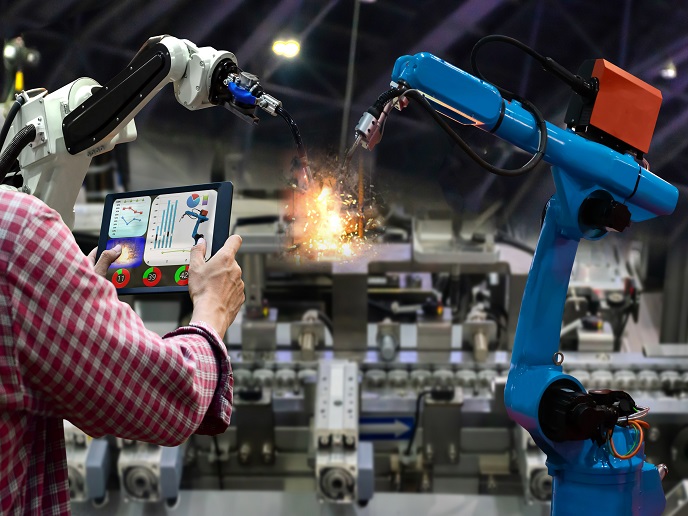Transforming industry with AI-powered quality control
As more manufacturers embrace Industry 4.0 principles, they are encountering issues such as limited data and insights on product quality, unreliable monitoring systems and poor data exchange across the supply chain. The InterQ project was conceived to address this, particularly in the aerospace, wind power and automotive sectors, where product quality and safety is paramount, and even minor defects can lead to significant negative outputs. “The primary objective was to achieve zero-defect manufacturing through the measurement, prediction and control of product and process quality,” explains InterQ project coordinator Jose Luis Lanzagorta, manufacturing processes researcher at Spanish technology centre IDEKO. “While enhancing safety, promoting sustainability by reducing waste and energy consumption, and driving technological advancement.” InterQ put together a consortium of 25 research institutions and industry partners across 11 European countries. Their goal was to transform processes and promote innovation in manufacturing quality by introducing tools powered by artificial intelligence (AI), providing manufacturers with meaningful and reliable data.
Machine intelligence
The project employed a new generation of digital technologies and AI-driven applications that included: digital twins; virtual sensors; AI decision support systems; data fusion; and distributed ledger technology. These were used in three key areas: data-driven optimisation; AI-powered inspection; and a collaborative quality ecosystem. For the first, InterQ transformed raw data into actionable insights, such as predicting equipment failures, optimising production and ensuring product quality. By leveraging AI, the project was able to replace destructive testing for quality assessment and complement non-destructive inspection methods such as ultrasound, eddy currents and vision systems, cutting time and material costs. Finally, InterQ built a trusted framework to foster data sharing and quality assurance across the supply chain. Each approach was tested in three pilots across the aerospace, wind power and automotive sectors, with significant success. In the aerospace demonstrator at ITP Aero in Spain, InterQ tools prevented various critical and costly parts from being scrapped in the aerospace pilot, leading to a saving of approximately EUR 265 000 (with projected savings of EUR 1.7 million over the next four years). Meanwhile, the Spanish wind turbine design centre Gamesa Gearbox saw the efficiency of non-destructive inspection increase by a remarkable 80 %.
Delivering tangible results
By the end of the project in October 2023, InterQ had developed a comprehensive quality control software suite that can be adopted by any manufacturer. It enables predictive maintenance, optimised production processes and ensured product quality through enhanced inspection methods. This also included the development of a sensorised tool holder that can identify surface defects made during the machining process, and an optical sensor for surface quality control to review completed parts, both of which highlighted the project’s ability to deliver tangible solutions for manufacturers. Additionally, the suite facilitated easy data sharing across the supply chain, which created collaboration and trust among partners. “What initially seemed like a daunting challenge gradually evolved into tangible and real solutions,” adds Lanzagorta. “And these have yielded significant advantages in crucial sectors of European manufacturing.” Meanwhile, InterQ made a scientific impact, resulting in 17 publications in top journals and global conferences in the field. Additionally, industry partners have engaged in over 30 events, further promoting the project’s findings.
Transforming manufacturing
In preventing defects, reducing waste and increasing efficiency, InterQ has demonstrated the potential of AI to revolutionise manufacturing and drive economic growth. Furthermore, the project focused on developing new manufacturing skills through project knowledge creation and sharing as well as providing training for personnel.
Keywords
InterQ, zero-defect, manufacturing, Industry 4.0, quality control, maintenance, industry, AI







